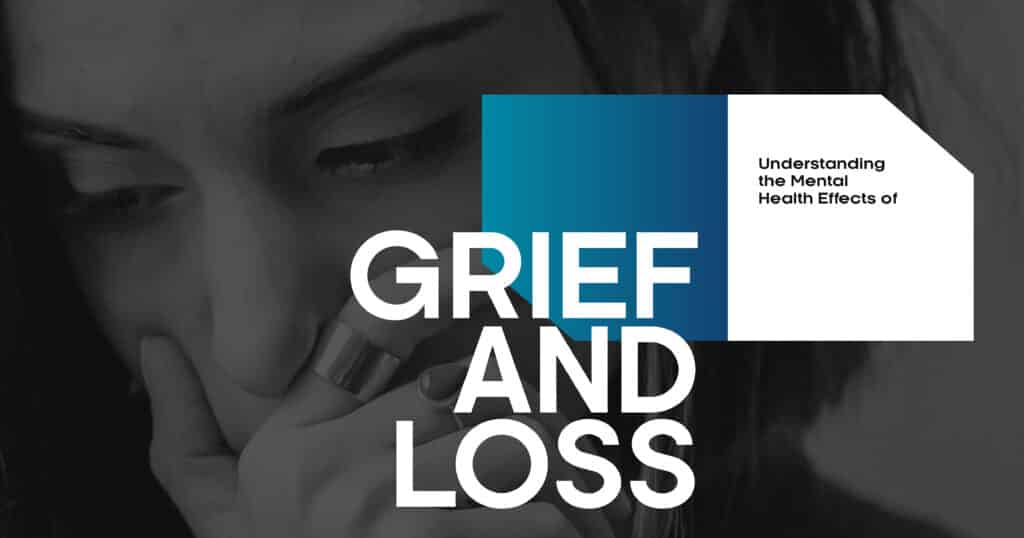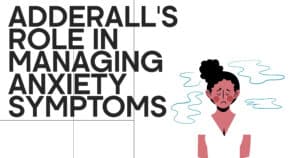It is a part and parcel of human life. Grief can be in response to the death of an important person, the ending of a relationship, or many other kinds of life changes. The influence of grief takes an intense toll on our psychological, emotional, and even physical well-being.
Grief is such an automatic phenomenon and has a very complex impact on mental health. It is very personal, and knowing the effects of grief on mental health and ways to deal with it has become all the more significant.
This post takes a look at the multidimensional aspects of grief, mental and emotional expressions, and comparisons concerning short-term versus long-term impacts, coping mechanisms, and when to seek professional help.
Grief and Its Mental Health Impacts
Grief is not just unhappiness. It interrupts every stage of the mind and emotional life. To get a hold of the mental health effects of grief, one needs to be aware of the entire spectrum of emotions and the obstacles that one meets when grieving.
| Emotional Disruption | Cognitive and Behavioral Changes |
| Sadness. The most commonly identified emotion is that many will cry or pull away as a way of mourning.Guilt. There can be remorse for unresolved issues or over unspoken and never-done things.Anger. Directed towards oneself, others, and sometimes to uncontrollable events.Numbness. A lack of emotional feelings that can be too much to bear. | Difficulty in Concentration. Their cognitive level is derailed, making them unable to focus even on some simple decisions.Disorientation. People are unable or do not know who or why they are.Social Withdrawal. Most bereaved people generally feel that others have alienated themselves from them. |
These psychopathological conditions illustrate how much grief and mental well-being are linked with each other. Though perhaps less severe over time, unresolved grieving causes more chronic psychopathology issues.
How Grief Manifests Mentally and Emotionally
The psychological and emotional effects of mourning are hard and unpredictable, different for everyone.
Cognitive Manifestations
- Thought Intrusions. Inability to forget and recurring memories or regrets about a loss.
- Hyperfixation on the Loss. Catastrophic thinking and inability to focus attention on other aspects of life.
- Decisional Paralysis. Feeling an inability to make even minor decisions because of emotional exhaustion.
Emotional Manifestations
- Feelings of Intense Sorrow. Usually described as a heaviness or ache in the chest.
- Mood Swings. Alternation of periods in which the individual is relatively peaceful and can be sudden escalations of emotions.
- Hopelessness. Feeling that things will never be alright again or will never happen again.
Understanding those responses is crucial to legitimizing the emotional impact of loss and learning how to control them better and positively.
Short-Term Vs. Long-Term Effects of Grief on Mental Health
Loss has both instantaneous and long-term effects, although the short-term and long-term impacts manifest differently.
Short-Term Effects
The initial days following a loss will mainly feature:
- Shock and Denial. A survival mechanism to cope with the enormity of loss.
- Emotional Over-Flow. The Crushing Weight of Grief May Make Individuals Experience Emotional Drain While Unable to Function.
- Physiological Symptoms. Loss of appetite, headaches, fatigue.
These symptoms generally abate if the individual starts to move toward recovery. However, they can linger on if adequate support is not given.
Long-Term Effects
If unresolved or complicated grief exists, then it may lead to serious long-term issues:
- Prolonged Grief Disorder. The yearning or pining for the deceased is accompanied by an inability to let go.
- Depression and Anxiety Disorders. This condition is defined by unceasing sorrow, fear, or worry.
- Physical Health Degeneration. Unresolved loss can cause heart disease, digestive problems, and impaired immune response due to chronic stress.
The long-term nature of the impact of grief on mental health calls for early diagnosis and intervention.
Understanding the Stages of Grief and Their Mental Health Implications
Five stages signal some conceptual frame through which one might understand the emotional passage one is experiencing upon loss: denial, anger, bargaining, depression, and acceptance.
- Denial. This is often disbelief and can be an initial cloak of comfort against the pain.
- Anger. Commonly expressed emotionally by resentment towards the loss or the situation that led to the loss but healthy if constructively dealt with
- Bargaining. An attempt to regain some control, usually “what if” or “if only”
- Depression: It is an intense period of sadness with the feeling of hopelessness and isolation from others.
- Acceptance. It is learning to live with the loss and re-entry into life.
It should be noted that these are not linear or successive.
Common Mental Health Challenges Following Loss
Loss often leads to a gamut of mental health issues, some of which require professional consultation.
| Anxiety | Depression | Sleep Disorder |
| Loss can create fear or uncertainty about the future, thereby culminating in the following:Generalized Anxiety. An over-sustained anxiety about one’s safety or that of one’s loved ones.Panic Attacks. Sudden attacks of intense fear where the individual can perceive physical symptoms like a racing heartbeat.Hypervigilance. An excessive level of alertness which is very exhausting. | Depression that comes with bereavement is manifested by:Prolonged Sadness. An emptiness or hopelessness that does not subside or reduce gradually.Loss of Interest. A loss of pleasure in activities that were once found enjoyableLoss of Energy. Feeling tired and low on energy for daily activities. | Grief can strongly impact sleep:Insomnia. Trouble starting sleep or returning to sleep with agitated thoughtsNightmares. Repeated appearances of the loss or fears associated with the loss.Hypersomnia. Sleeping too much is a coping mechanism for emotional anguish. |
Physical Effects of Grief on Mental Health
Most individuals pay little heed to the physical effects of loss. The human psyche and body are interrelated. A great deal of times, emotional pain attacks the body first, exacerbating mental health issues.

- Fatigue Syndrome. Emotional exhaustion quickly leads to physical exhaustion.
- Gastrointestinal Problems. Tension can lead to stomach aches, nausea, or loss of appetite.
- Weak Immunity. Permanent stress due to grief can expose individuals to more diseases.
Coping Mechanisms and Support Strategies
Grief is inevitable, but it’s a phase that can be tamed healthily and appropriately in this manner:
- Accept Your Feelings. Grieving is normal. Let go of all those feelings without judgment.
- Seek Support Systems. Share your sentiments with close friends, family members, or support groups.
- Practice self-care. Engage in physical activities, good nutrition, and other mindfulness practices that care for your body and mind.
- Seek creative outlets. Try writing, painting, or some form of self-expression.
- Consider therapy. This provides a safe environment where loss can be discussed and processed.
When to Seek Professional Help for Grief
Grief is a severe condition if it interferes with your ability to live your daily life or when it turns dangerous. Some signs to prompt seeking professional help include:
- Recurrent Sorrow. Hopelessness that does not disappear.
- Thoughts of Self-Destructive Activity. Such as suicidal thoughts, whether killing oneself or hurting oneself in another way.
- Substance Abuse. A poorly conceived attempt to drown emotional pain with alcohol or drugs.
CBT and grief counseling are helpful not only in being supportive but also in guiding you back to a state of purpose and meaningful connection.
Moving Forward While Honoring Loss
Grief occurs with a profoundly personal process. Though it will never disappear, the pain can lessen in intensity and open spaces for healing and growth. Accepting the mental health effects of grief and finding appropriate avenues for support can help individuals come to terms with their loss while gaining new meaning in life.
Often, only professional help will start the healing process if you or someone close to you is struggling with grief. Help is available, and healing is possible.

FAQs
- What are the most common mental health effects of grief?
Some common psychological reactions to grief include anxiety, depression, and sleep disturbances. It also has physical signs, such as fatigue or difficulty digesting.
- How can I differentiate between normal grief and complicated grief?
Normal grief is graduated and slowly subsides over time. Complicated grief lasts much longer and seriously interferes with daily life and function.
- Is it normal to feel anger during grief?
Yes. Anger is a normal response to loss and can be turned on oneself, others, or the situation.
- How long does the grieving process last?
Everyone grieves differently. Severe mourning can last several weeks to months, and delayed mourning can last more than a year without suitable support.
- What are effective coping strategies for grief?
Coping strategies include talking to loved ones, being self-caring, finding creative avenues, or seeking therapy if required.
- When should I seek professional help for grief?
Seek professional help from a therapist or counselor if it interferes with daily life, creates harmful behavior, and does not improve over time.
- Can grief affect physical health?
Yes. Grief can lead to chronic fatigue, weakened immunity, and digestive problems due to its impact on stress levels.







